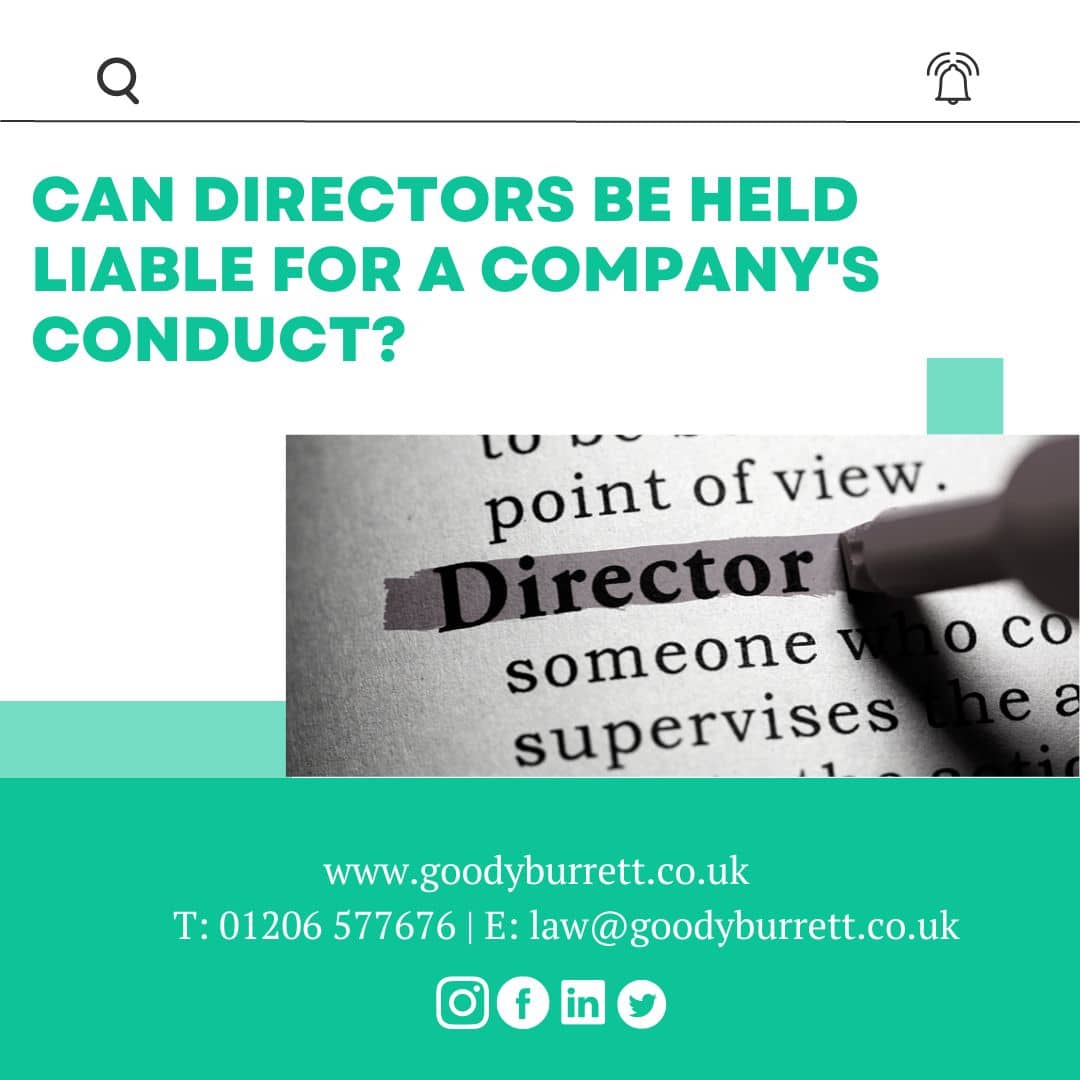You may be aware that a company has a separate legal personality from its shareholders and directors. Just like a person, a company can own property, enter into contracts, borrow money, sue and be sued. But does this mean that directors can never be held liable for their company’s conduct?
The short answer is no. As we looked at in our last commercial blog, directors of a company are subject to various statutory duties owed to their company under the Companies Act 2006. If a director breaches his duties, the company may take action against him. The director may be required to account for profits, return property or pay compensation to the company. Alternatively, shareholders may by way of resolution ratify or in other words sanction the director’s behaviour meaning that they and therefore the company cannot subsequently take action against him. Because of this, if a director is also a majority shareholder, he might feel that he can breach his duties as director, yet sanction them as shareholder, thus avoiding liability for his actions. This shouldn’t be relied upon. Share ownership of a company can change affecting the level of control he has, or he may fall out with other shareholders he has previously depended on to vote in his favour. A minority shareholder can also bring what is known as a ‘derivative claim’ against the company for any perceived wrong-doing.
Aside from a breach of directors’ duties, a director may also find himself liable under the terms of a contract. When a director enters into a contract he does so as an agent on behalf of the company. This means the company is a party to and may be sued for breach of contract, not the director. However, the director must ensure that whomever he is dealing with is aware of this, and correspondence and stationery should indicate the same. They must also ensure that when entering into third party contracts, that they do not exceed their authority to do so. A distinction in law is made between a director’s actual and apparent authority. His actual authority is that authorised by the company. His apparent authority is that ostensibly and outwardly shown. If he exceeds his actual authority, but does not exceed his apparent authority, the contract will be binding on the company. The director will be liable to the company to indemnify them for any loss suffered. If he exceeds his actual and apparent authority, the contract will not be binding on the company. The director will be personally liable to the third party for any loss suffered.
Alongside this the director may be liable for negligent or fraudulent misrepresentation. In the landmark case of Contex Drouzhba Ltd v Wiseman, the defendant director agreed to pay the claimant for a shipment of goods within 30 days, knowing that his company was insolvent and unable to meet this obligation. He had fraudulently misrepresented them and was liable for damages, a decision upheld by the Court of Appeal which stated, “where fraud is committed by a director, his status as director of the company cannot act as a shield from the liability for his own fraud”.
Directors may also be personally liable if, as is often the case, they give personal guarantees as security for a loan to the company. If the company defaults on that loan, the personal guarantee can be enforced against the director’s own assets. In a worst-case scenario, he may lose his home or be declared bankrupt. What this begins to show is that a director, as agent of a company, cannot hide behind it. There are various ways, not all them covered here, that a director can find himself personally liable. For further information on directors’ liabilities, please don’t hesitate to contact our Commercial solicitor, David Cammack. Please call 07909 564799 or e-mail [email protected].
For more information
Contact us on 01206 577676 or you can email [email protected]

